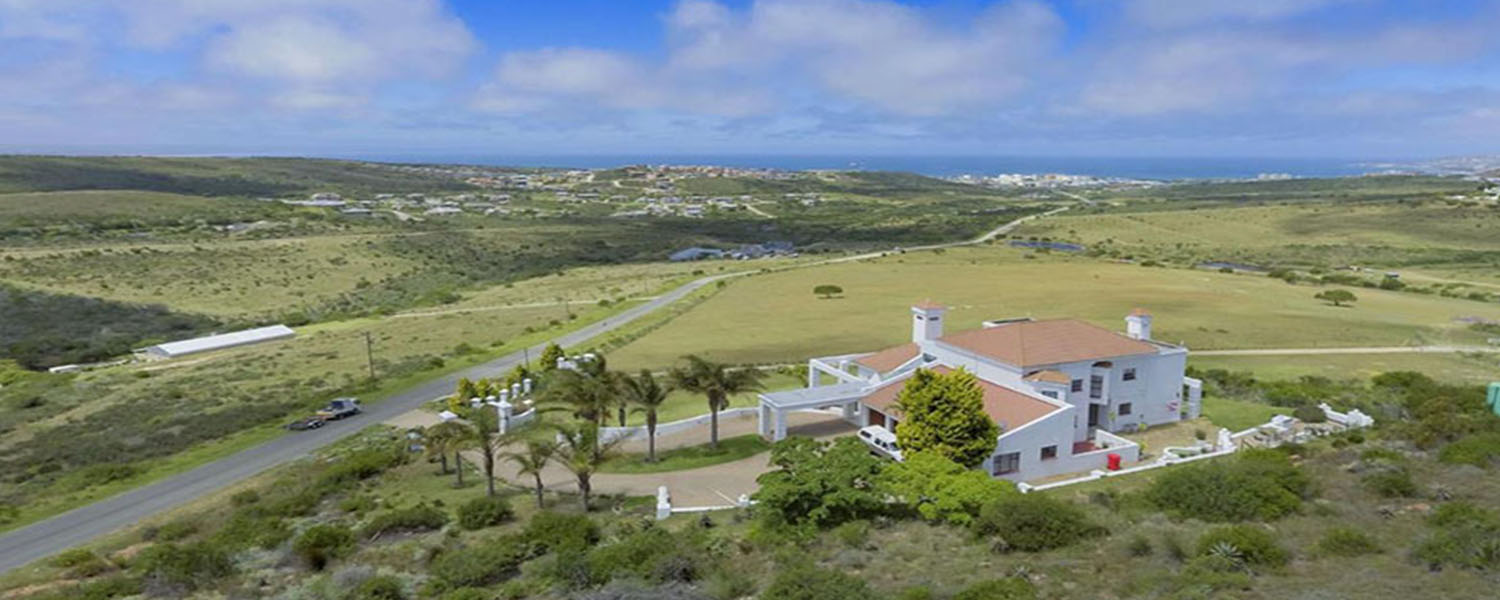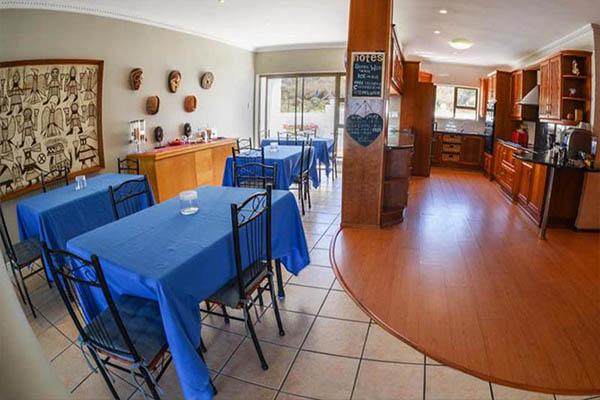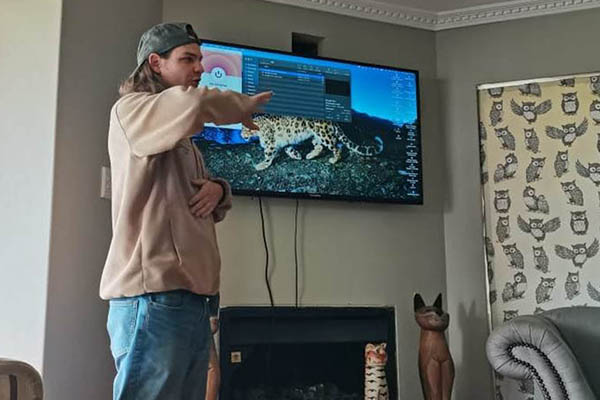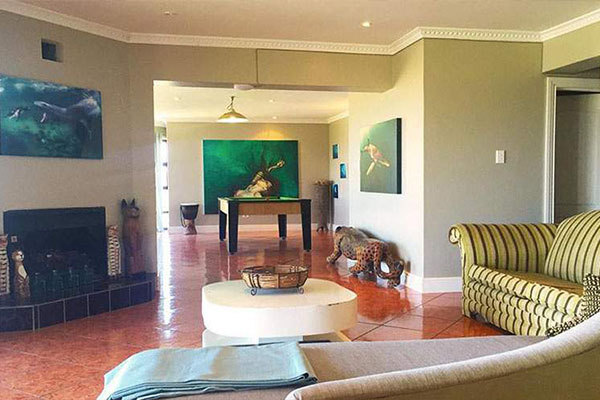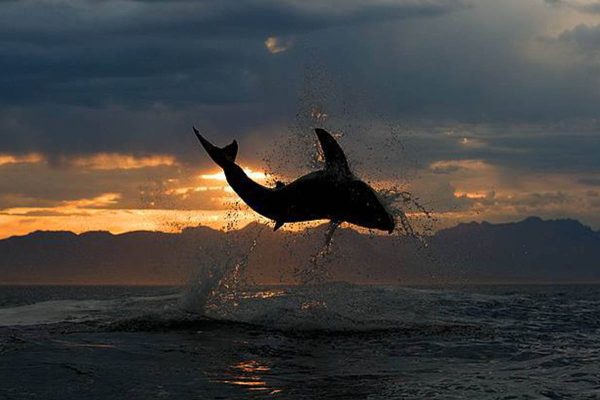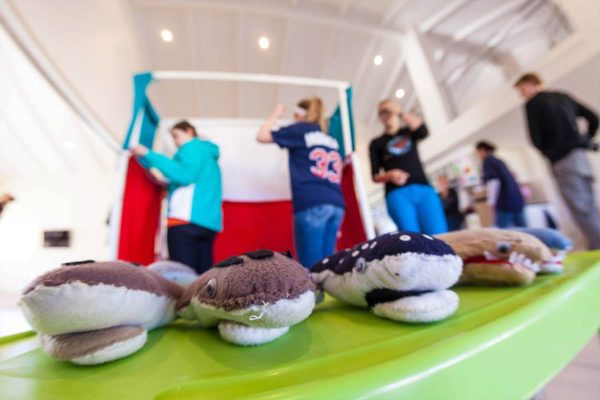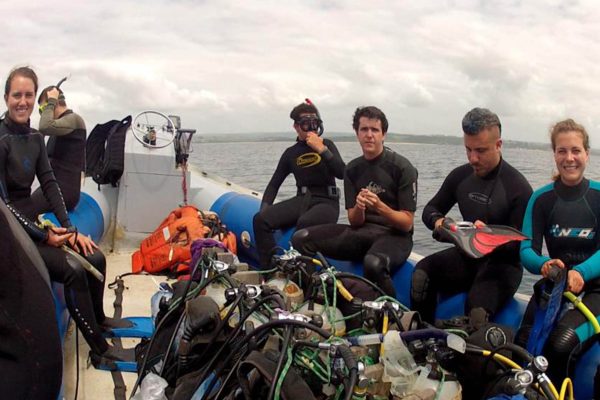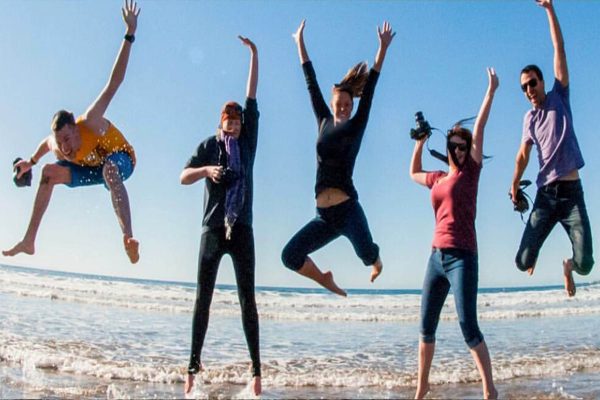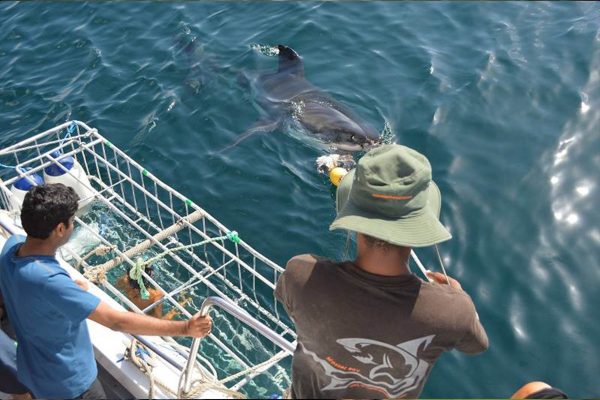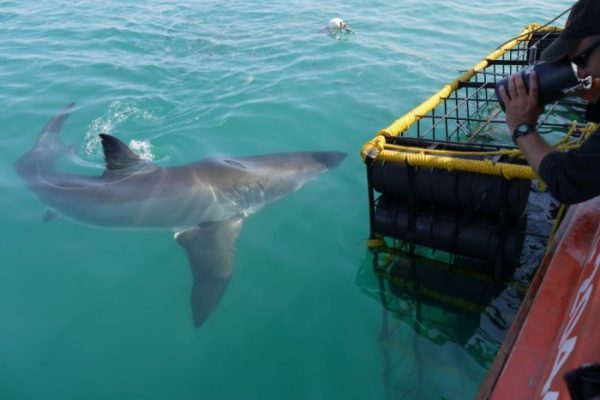[dropcaps type=’circle’ color=” background_color=’#9d9d9d’ border_color=”]G[/dropcaps]reat White Shark Population. Monitor and determine the local population of great white sharks using photo identification of dorsal fins, pigmentation patterns, and additional measures (e.g. CPUE) collected through citizen science research on white shark cage diving tourism vessels.
[dropcaps type=’circle’ color=” background_color=’#9d9d9d’ border_color=”]C[/dropcaps]olour change in sharks. Conduct colour change study in great white sharks and other species. utilise colour boards, and skin sampling to describe the hormonal control of shark’s colours.
[dropcaps type=’circle’ color=” background_color=’#9d9d9d’ border_color=”]P[/dropcaps]redator-prey techniques. Conduct visual observations and utilise behavioural ethograms to describe and assess the predator-prey dynamics of great white sharks and Cape fur seals.
[dropcaps type=’circle’ color=” background_color=’#9d9d9d’ border_color=”]e[/dropcaps]DNA. Contribute to the genetic profiling of the resident great white shark population through environmental DNA sampling.
[dropcaps type=’circle’ color=” background_color=’#9d9d9d’ border_color=”]D[/dropcaps]iversity assessment. Monitor shark abundance and diversity on local reefs through observation recreational dives.
[dropcaps type=’circle’ color=” background_color=’#9d9d9d’ border_color=”]T[/dropcaps]racking. Contribute to ORI shark tracking studies using visual tags. These studies are conducted on sharks other than great white sharks under project guidelines of the Oceanographic Research Institute (ORI).
[dropcaps type=’circle’ color=” background_color=’#9d9d9d’ border_color=”]B[/dropcaps]each & reef clean. Assist in our biweekly efforts to keep the beaches and reef systems of Mossel Bay clean with dedicated cleanups.
[dropcaps type=’circle’ color=” background_color=’#9d9d9d’ border_color=”]S[/dropcaps]eabird rehabilitation. Contribute biweekly to the husbandry and maintenance of injured and oiled seabirds by volunteer working with the SAPREC foundation
[dropcaps type=’circle’ color=” background_color=’#9d9d9d’ border_color=”]S[/dropcaps]top shark fining campaign. Assist in our ongoing online social media awareness campaigns fighting for the cease of unregulated shark fishing and the practice of shark fining.
[dropcaps type=’circle’ color=” background_color=’#9d9d9d’ border_color=”]S[/dropcaps]ave sharks production. Host and produce our monthly podcast and vlog series highlighting the conservation needs and efforts of sharks throughout the world.
[dropcaps type=’circle’ color=” background_color=’#9d9d9d’ border_color=”]T[/dropcaps]ourism educator. Adopt the role of educator on great white shark ecotourism expeditions. Ensure that cage diving is presented correctly and guests depart as ambassadors for shark conservation.
[dropcaps type=’circle’ color=” background_color=’#9d9d9d’ border_color=”]L[/dropcaps]earner educator. Travel with the team as we visit schools throughout South Africa’s garden route and engage with learners on the importance of ocean and shark conservation.
[dropcaps type=’circle’ color=” background_color=’#9d9d9d’ border_color=”]S[/dropcaps]urfer kids mentorship. Join our mentorship partnership with the Surfer kids of Mossel Bay. The Surfer kids are a passionate non-profit club for underprivileged and street children who are bettering themselves by learning to surf, swim, develop marine professions and become ocean ambassadors.
[dropcaps type=’circle’ color=” background_color=’#9d9d9d’ border_color=”]V[/dropcaps]isitor Education. Join in on our biweekly presentations on shark research and conservation to tourists visiting Mossel Bay. Enjoy these evenings of education and enlightenment at some of the towns top hotels.
[dropcaps type=’circle’ color=” background_color=’#9d9d9d’ border_color=”]O[/dropcaps]our white shark research and conservation internship is led by a passionate team. We comprise specialist scientists, educators and conservationists, all dedicated to ensuring the survival of sharks in South Africa
Sophu Qoma
RESEARCH SCIENTIST
[dropcaps type=’circle’ color=” background_color=’#9d9d9d’ border_color=”]S[/dropcaps]ophumelela represents a leader in a new generation of marine scientists and conservationists. Following graduation from Nelson Mandela University, she founded the Sea-the-Change program aimed at providing marine employment skills to the youth of Mossel Bay. Her subsequent work as a shark research/education coordinator won accolades and saw her selected as South Africa’s spokesperson at the African Protected Areas Congress and as an ambassador for youth for Marine Protected Areas.
Nico Booyans
RESEARCH SCIENTIST
[dropcaps type=’circle’ color=” background_color=’#9d9d9d’ border_color=”]N[/dropcaps]ico is a young aspiring shark biologist, head marine biologist and course instructor for the Shark Research Unit developing his master’s research on the sharks of Mossel Bay. Nico represents a leader in a new generation of marine scientists and conservationists and is actively involved with organisations such as Justice4Jaws and Youth4MPA’s. Nico also manages the unit’s special projects at our Mossel Bay facility. His roles include hosting our great white shark research students, orientating postgraduate students and managing data sets.
Fiona Ayerst
STUDENT LIASON
[dropcaps type=’circle’ color=” background_color=’#9d9d9d’ border_color=”]F[/dropcaps]iona is the dedicated student liaison for interns planning to join the shark Research Unit. As an avid shark conservationist (director of the Sharklife NGO) and Underwater photographer, Fiona is well versed in ensuring prospective interns have all their queries about the great white shark internship program quickly and accurately answered.
[dropcaps type=’circle’ color=” background_color=’#9d9d9d’ border_color=”]W[/dropcaps]hite Shark Research Interns will stay at our luxury shark centre, located in Mossel Bay, South Africa for the duration of the program. The facility offers single-sex dorm accommodation or single private accommodation if you request. On occasion, the team will travel outside of Mossel Bay to our research stations at Plettenberg Bay and Scottburgh
Internship price
from
- Internship training
- Shark expeditions
- Accommodation
- Catered meals
- Local Transport

[dropcaps type=’circle’ color=” background_color=’#9d9d9d’ border_color=”]O[/dropcaps]ur White Shark Internship offers a diverse itinerary to suit the expectations of a broad cross-section of participants who seek to work with the ocean’s greatest predator. The field internship program provides a hands-on approach to working with great white sharks and other species in the area, including conducting novel research, outreach and conservation programs. The ultimate goal of the great white shark research internship is to increase public awareness, advance shark science and assist in the conservation of South Africa’s unique shark species. We are hoping you can bring your skills and passion for helping understand and conserve these incredible animals!
The programs highlights include:
-
- Eight dedicated great white shark research expeditions in Mossel Bay, South Africa.
- A three-day expedition to Plettenberg Bay’s Robberg Reserve for a bird-eye scientific survey of great white sharks patrolling and hunting at the seal colony; and
- Six research and conservation SCUBA (or freediving) expeditions to conduct studies on sand tiger (ragged-tooth) sharks and small, shy sharks
[dropcaps type=’circle’ color=” background_color=’#9d9d9d’ border_color=”]T[/dropcaps]he great white shark research internship program is open to everyone with the time available and the desire to contribute to our great white shark conservation, education and citizen science efforts. If participants want to join the team on recreational SCUBA dives, then an open-water SCUBA certification is required. This can be gained either before or during your participation in the internship.
o. You will not be employed by the Shark Research Unit nor paid. On this internship you are entitled to enter on a temporary visitors permit (e.g. tourism permit). Tourist visiting visas are usually issued for three months/90 days upon entry in South Africa. However, we do recommend that you contact the South African Embassy or Consulate in your country and confirm this fact.”
A lot of interns enjoy extra trips and tourism activities when time permits. We recommend you have around USD1000 extra per month if you wish to go on these. Please note you do not have to go on ANY of these extra trips. This is simply for your information should you wish
When it comes to support, we ensure that each participant is provided with unparalleled, 360 degree support, from your initial contact with the Shark Research Unit, all the way through your program, and even after, as you become part of the SRU Alumni Team. As part of this promise, we will ensure that one of our dedicated staff will be available to meet you at George airport or the Mossel Bay bus station. We also set up a Whatsapp group to help with managing airport arrivals and assist you during your travel. We will arrange with you prior to your departure that, should you arrive in the agreed upon pick up window, a member of our staff will be there to welcome you, easily identifiable in a Shark Research Unit t-shirt and wearing a friendly smile. This means there will be someone there to greet you as you land, and from there you will be transported to the SRU base base to start your adventure and meet the rest of your team
If you are getting ready to pack, here is a rough packing list of items you should consider bringing. Clothing Work clothes. Bring what you are comfortable in, but ensure that you have warm, strong work clothing of neutral colours, solid work shoes such as hiking boots or trainers, a good sun hat with a wide brim and a warm hat/beanie. Gloves can be helpful for early mornings. Bring a tracksuit or something similar to lounge around in during the evenings, which can get cold. Also, face buffs help keep off the cold in the evenings. Social clothes. Mossel Bay is a small town, so social clothing should reflect a casual, non-formal style. A swimming costume. Video and electronic gear You are more than welcome to bring any personal videography or photographic equipment, however, this is totally optional. Miscellaneous Covid negative test results Toiletries & strong sunscreen (there are also plenty of shops to purchase from). Prescription medication. Passport & photocopy of passport. Bank cards (inform your bank of your travels). Spare cash. Phone & cables. Mail
When you are accepted into this internship program, you will have to sign liability, copyright documents, as well an agreement that you are knowingly partaking in potentially dangerous activities. You will not be covered for accidents, breakages, theft or illnesses, so please do organize your own medical and travel insurances. Chances that you will be injured by a shark are very slim if you follow the safety guidelines, and do not try anything foolish of which we would not approve. However, you will be working in an ocean environment which can result in accidents. So it is important to be covered in case of an emergency or accident. Be sure to have an insurance cover for your entire stay in Southern Africa.
The program consists of both on-site and off-site work. Prior to arrival in South Africa, participants are required to complete a two week online eLearning program aimed at grounding you in the theoretical skills required to enable you to make a meaningful contribution to the program. Onsite, participants can participate for a minimum period of two weeks and a maximum period of three months.
South Africa is far from Malaria areas, and there are no strange African diseases which you could pick up (that is if you respect the same safety rules as anywhere else in the world). Please ensure that you bring any medication required. If you will require medication whist in South Africa, please contact us to ensure that it is available.
Since our inception, the Shark Research Unit has prioritised the health and safety of our staff, participants, partners and local community members. In response to the global COVID-19 pandemic, SRU has created the SRU health and hygiene team to put in place new standards of cleanliness, norms and behaviours that meet international recommendations to ensure the ongoing safety of participants, staff and the local community. Internationally recommended practices, such as advice from the World Health Organization (WHO), the Centers for Disease Control and Prevention, and the governments Australia, UK and US, continue to be monitored and the standards are likely to change if and when international advice changes.
Lorem ipsum dolor sit amet, consectetur adipisicing elit, sed do eiusmod tempor incididunt ut labore et dolore magna aliqua. Ut enim ad minim veniam, quis nostrud exercitation ullamco laboris nisi ut aliquip ex ea commodo consequat. Nulla consectetur mauris ante, id aliquet ligula vehicula vel aliquam orci et justo suscipit.
Lorem ipsum dolor sit amet, consectetur adipisicing elit, sed do eiusmod tempor incididunt ut labore et dolore magna aliqua. Ut enim ad minim veniam, quis nostrud exercitation ullamco laboris nisi ut aliquip ex ea commodo consequat. Nulla consectetur mauris ante, id aliquet ligula vehicula vel aliquam orci et justo suscipit.
Lorem ipsum dolor sit amet, consectetur adipisicing elit, sed do eiusmod tempor incididunt ut labore et dolore magna aliqua. Ut enim ad minim veniam, quis nostrud exercitation ullamco laboris nisi ut aliquip ex ea commodo consequat. Nulla consectetur mauris ante, id aliquet ligula vehicula vel aliquam orci et justo suscipit.
Lorem ipsum dolor sit amet, consectetur adipisicing elit, sed do eiusmod tempor incididunt ut labore et dolore magna aliqua. Ut enim ad minim veniam, quis nostrud exercitation ullamco laboris nisi ut aliquip ex ea commodo consequat. Nulla consectetur mauris ante, id aliquet ligula vehicula vel aliquam orci et justo suscipit.
Lorem ipsum dolor sit amet, consectetur adipisicing elit, sed do eiusmod tempor incididunt ut labore et dolore magna aliqua. Ut enim ad minim veniam, quis nostrud exercitation ullamco laboris nisi ut aliquip ex ea commodo consequat. Nulla consectetur mauris ante, id aliquet ligula vehicula vel aliquam orci et justo suscipit.
Lorem ipsum dolor sit amet, consectetur adipisicing elit, sed do eiusmod tempor incididunt ut labore et dolore magna aliqua. Ut enim ad minim veniam, quis nostrud exercitation ullamco laboris nisi ut aliquip ex ea commodo consequat. Nulla consectetur mauris ante, id aliquet ligula vehicula vel aliquam orci et justo suscipit.
consectetur adipisicing elit, sed do eiusmod tempor incididunt ut labore et dolore magna aliqua.




